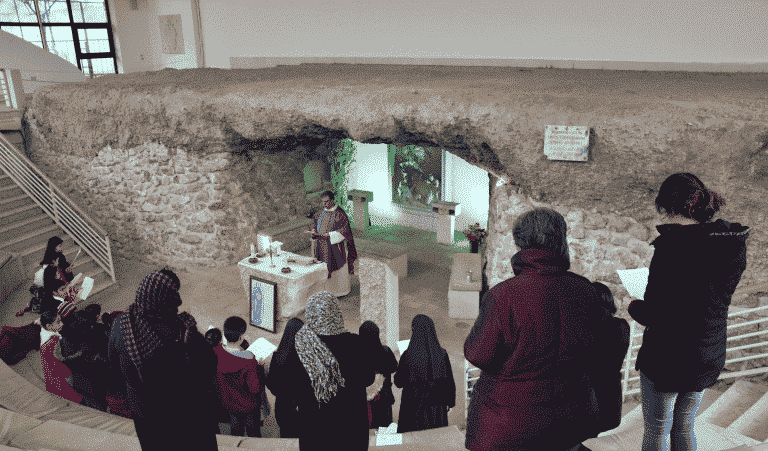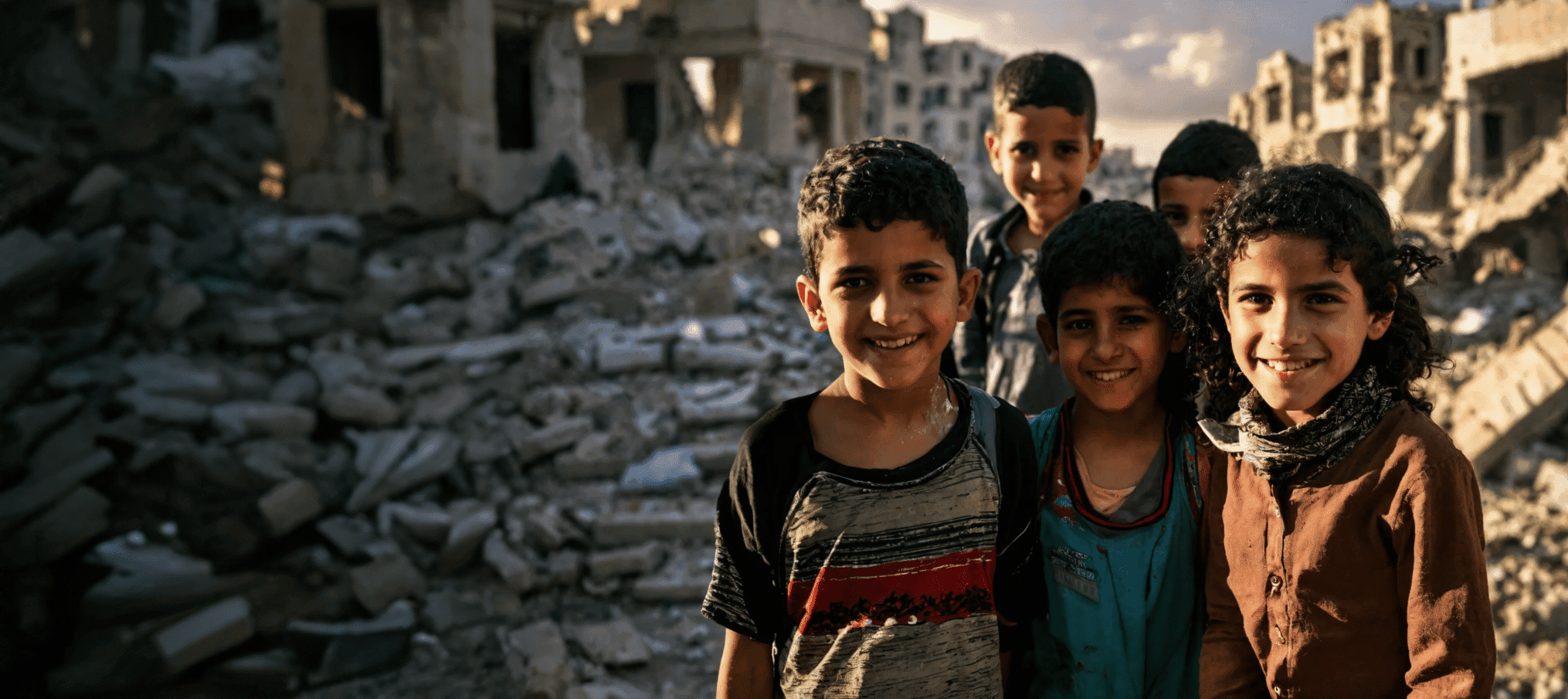Today we recall the Conversion of Saint Paul, which took place on the road between Jerusalem and Damascus (Acts 9:3-7).
Damascus is the capital of Syria, and just outside the ancient town stands a rather modern building that preserves, intact, a few meters of a Roman road paved in stone. This is claimed to be the place where the Conversion of St. Paul took place. It is the so-called 'Memorial' at the Tabbaleh district.
St. Paul's Conversion in the Bible
The texts relating to the conversion of St. Paul near Damascus are quite well known, as are the facts: Saul, not yet known as Paul, is on his way to the city of Damascus when "a light from heaven", later identified with the Lord Jesus, makes him fall to the ground. Having received from Jesus the order to enter the same city of Damascus, Saul goes there in a condition of blindness, from which he is healed only thanks to the intervention of Ananias, called by the Lord to go to the house where Saul himself was.
The text of the Acts of the Apostles highlights the doubt and courage of Ananias within the episode that leads to the definitive conversion of St. Paul to Christianity. Saul is a man who, until his journey to Damascus, reasoned of "threats and massacres against the disciples of the Lord" (Acts 9:1) and in fact Ananias responds with fear to the invitation to go to him: "Lord, with regard to this man I have heard from many how much harm he has done to your faithful in Jerusalem" (Acts 9:13).
Despite this fear, Ananias went to where Saul was staying, and became a decisive actor in the history of the conversion of St. Paul, even ending up baptizing the new apostle. The Lord had now made Saul his disciple, and had made the ancient protagonist of "massacres and threats" an ardent preacher for peace.
A Syria to be pacified
It makes a certain effect to reread these texts today, at a historical moment that marks the tenth year of the long history of war in Syria. How much need there would be for a new "conversion of Saint Paul" in this country! Of a war actor who, by grace, can be transformed into a voice of peace.
Under the constant fall of the bombs, which in the region of Idlib and Aleppo continue to tear the sky and the concrete, in poverty that an ineffective political system can no longer cope with; even more, in the black misery that international sanctions inflict on Syria, how much need there would be for a new conversion of St. Paul. A word of peace, a seed of hope, a strong and credible discourse of grace and communion: because this is what brought the Apostle to the Gentiles into the world.
The conversion of St. Paul into Pro Terra Sancta: the fruits of charity
On the day when we remember St. Paul's conversion, we at Pro Terra Sancta also relaunch our commitment to a conversion of hearts in that tormented and blessed land that is Syria. We also do this by seeking to open wide that horizon of peace and fraternity. A horizon that, in the end, finds its roots in the living experience of Jesus that Paul also made.
This is what we are trying to achieve in Damascus, inside our emergency center,which currently assists more than 3500 people, and tries to guarantee a first base of support thanks to which to keep hope alive. This is what we also do in the North, where the war is harder and heated: in Lattakia (recently bombed by forces of international coalitions) as in Aleppo (where the signs of recent bombings are still visible).
This is the way we too can reach out to the peoples with a plan of grace, a living way to bear witness to the riper fruits of St Paul's conversion.
A word of hope is what our beneficiaries receive within the Aleppo project "A name and a future". To find out what we are doing, just stay with us until Friday!


















